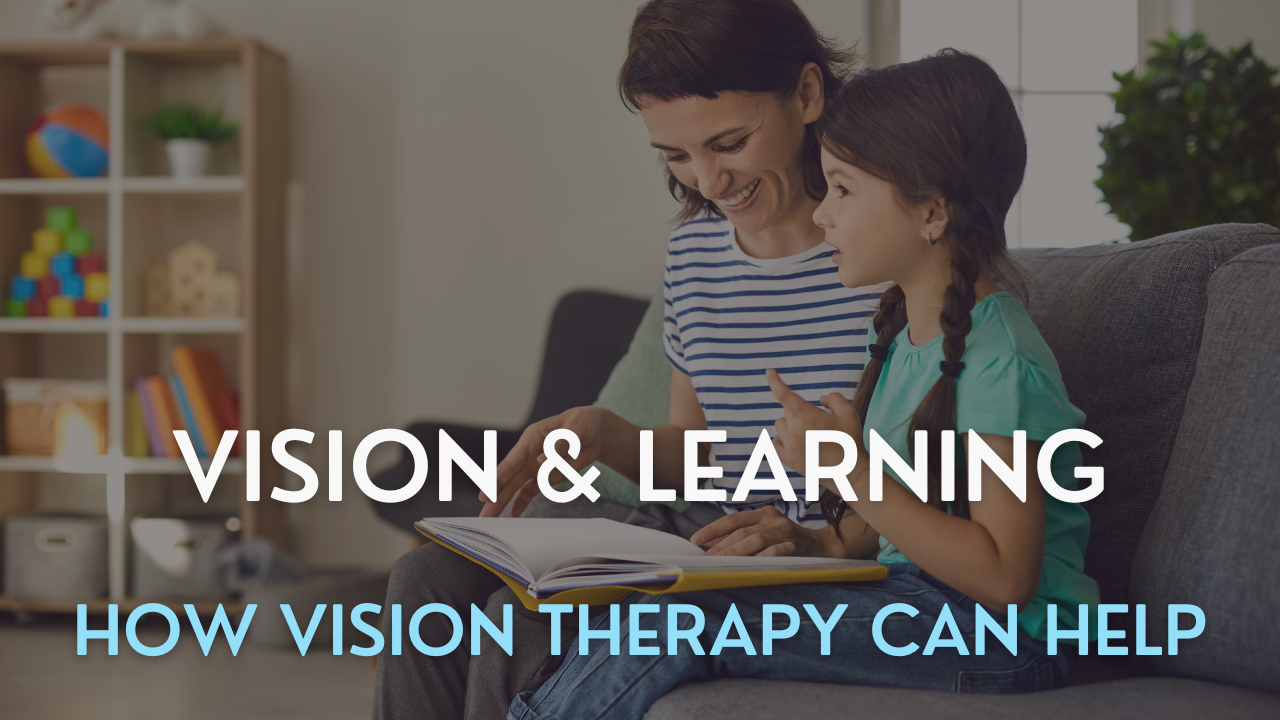Binocular Vision Clinic
At Castro Valley Optometry, we help children and adults overcome problems with how their eyes work together. These vision issues usually start in childhood, but can also develop later due to head injuries, health problems, or aging.
Good vision means more than just seeing clearly. Your child's eyes need to work together properly for them to see and feel their best. Our team provides you and your family with the care and solutions you need. Contact us today to help your child experience better vision and a brighter future.
What is Binocular Vision?
Binocular vision problems affect how both eyes work together and communicate with the brain. Usually, our eyes work as a team to create one clear picture. When there's a problem with this teamwork, it can cause vision problems in children. Getting help early can greatly improve your child's visual development and quality of life.
The Vision & Learning Connection
Most parents know that blurry vision can affect their child's school performance, but other vision problems can also cause trouble. Reading and schoolwork require the eyes to focus, work together, and track properly. Learning also depends on the brain's ability to process information quickly.
Research shows that treating these vision problems can improve your child's academic performance and help them reach their full potential.
Why Choose our Binocular vision clinic?
Our team of eye doctors is highly trained to find and treat binocular vision problems. All of our doctors have completed residency training in various areas—which is voluntary, additional training for an optometrist. Dr. Maggie Francisco has special training in vision therapy & rehabilitation for binocular vision conditions. She earned Fellowship in the American Academy of Optometry (FAAO) for her research and study in binocular vision and vision rehabilitation. This training shows her expert knowledge in these specialized areas.
Common binocular vision conditions
Amblyopia (lazy eye): One or both eyes cannot see clearly, even with glasses. This develops in early childhood and gets harder to treat as the child gets older.
Strabismus (eye turn): One eye turns in, out, up, or down while the other eye points straight.
Convergence insufficiency: The eyes have trouble focusing on things up close, causing eye strain and blurred vision.
Eye movement disorders: Problems with eye movements and tracking, often leading to poor reading skills and trouble with sports.
Visual processing disorders: Problems with how the brain uses information from the eyes, affecting visual memory and hand-eye coordination.
Signs & Symptoms
If you or your child experience these signs, binocular vision treatment could help:
Headaches or tired eyes after reading or screen time
Blurred or double vision
Lazy eye, or eyes that don't work together
Trouble concentrating when reading
Skipping words or lines while reading
Poor depth perception or clumsiness
Feeling tired after reading or close work
Watch for These Signs in Children
Reading below grade level
Poor handwriting or spacing problems
Avoiding reading or writing tasks
Trouble catching or throwing a ball
Treatment options
Glasses or Patching: Special glasses or an eye patch to help the eyes work together and see more clearly.
Regular Check-ups: Regular visits to track progress and adjust treatment.
Vision Therapy: Like physical therapy for the eyes, this is a custom program of exercises designed to improve how the eyes work together. These exercises strengthen eye muscles, improve coordination, and enhance visual processing skills.
Ready to Schedule?
Our office offers all treatment options, including vision therapy services.
Book your appointment today for a binocular vision consultation to get started.

